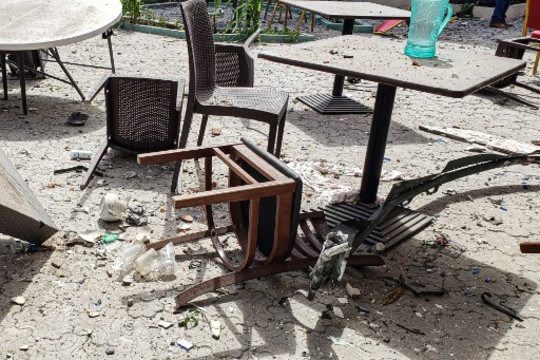Somalia is one of the most dangerous countries in Africa and presents a real risk of death for journalists. Corruption and insecurity are a serious obstacle to press freedom.
Since 2010, 55 journalists have been killed, including one Malaysian, 1 Italian and 6 Russians with the deadliest year being 2012 when 18 journalists got killed. Only 4 killers have been punished.
Since the beginning of the year, 3 journalists have been killed.
In Somalia, the Al-Shabab movement has been active since 2006 and was responsible for the death of three journalists in 2019. This Islamist terrorist group of Jihadist Salafist ideology is part of Al Qaeda. They are held responsible for many attacks, assassinations and kidnappings since their inception, also affecting journalists and media workers, and usually claim responsibility for them.
Al-Shabab members attack journalists (and civilians) who do not submit to self-censorship. Besides physical attacks, torture and arrests, the media are also closed by order of the Somali authorities. Journalists who try to carry out their work with a critical opinion are in danger of being killed.
According to the National Union of Somali Journalist (NUSOJ), an IFJ affiliate, 3 journalists’ killers from Al-Shabab have been prosecuted, sentenced to death and executed by firing squad. The union welcomes the prosecution of journalists’ killers but is against death penalty.
A policeman was also sentenced to a 5-year jail term this year for the killing of Abdirisak Qasim Imankilled on 26th July, 2018.
In 2019, the 3 journalists got killed by bomb blasts carried out by Al-Shabab.
Abdinasir Abdulle Ga’al was a 24-year-old cameraman working for government-controlled radio station, Somali National Army (SNA). He was killed in Mogadishu in a bomb blast targeting the local military base in Awdheegle, 70 kilometers southwest of Mogadishu. The blast was one of the two attacks carried out by the militants of Al-Shabab group. The two other killed journalists were Mohamed Omar Sahal and Hodan Nalayeh.
The two TV journalists were among the victims of a suicide attack on the Asasey Hotel.in the Somali port city of Kismayo. Sahal, a 35-year-old correspondent of Somali Broadcasting Corporation in Kismayo, and Nalayeh, a 43-year-old journalist, worked on various TV channels. She had returned to Somalia from Canada and started an online TV station called Integration TV to promote Somalia’s transformation. After the blast, gunmen forced their way into the hotel and went on a shooting spree, which left 26 people dead and 53 others injured, according to media reports.
Omar Faruk, the secretary General of NUSOJ said: “Somali media is effectively under siege, as journalists are targeted from all sides in a disturbing pattern of abuses, aimed at silencing their reporting. The climate of fear has already had a chilling effect on freedom of expression and the broader struggle to expose human rights abuses across Somalia. Impunity fuels recurring violence against journalists. The crimes of attacking journalists must be instantly, meticulously and effectively investigated. Somali journalists must be shielded from violence and intimidation. And there must be a clear and unambiguous assurance from the Somali authorities, including the Federal Government and Federal Member States, to end impunity for attacks on journalists. As long as there continues to be impunity for crimes targeting Somali journalists, Somalia will not be able to decisively break from that dark history of oppression, injustice and a human rights crisis.”


